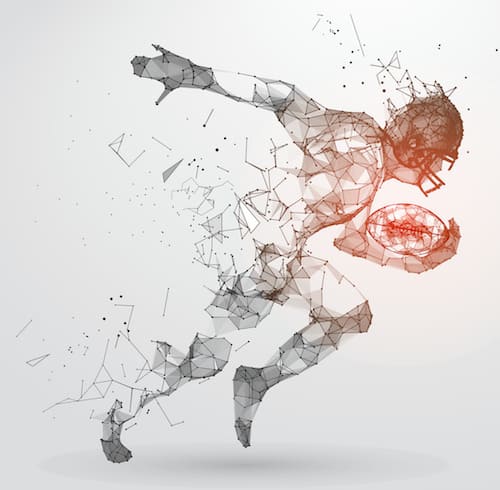May 17, 2019
By Chris Hubbard
 As a kid, I vividly remember sitting around my grandmother’s house thinking, “I want to be an NFL player and have a big NFL contract one day.” Looking back, I never dreamed that I would be where I am now, having just finished my first season with the Cleveland Browns.
As a kid, I vividly remember sitting around my grandmother’s house thinking, “I want to be an NFL player and have a big NFL contract one day.” Looking back, I never dreamed that I would be where I am now, having just finished my first season with the Cleveland Browns.
However, it wasn’t an easy road. In addition to all of the physical demands of becoming a professional athlete, I have also battled with depression and anxiety.
The challenges started when I was a student: dealing with demanding transitions, bullying and balancing my schoolwork with athletics. I could see that others around me were going through similar issues, but I didn’t feel the need to speak to a school counselor. Along the way, I taught myself to brush off my symptoms and I would try to shift my focus to elsewhere.
During my time at the University of Alabama Birmingham (UAB), balancing my schoolwork and football began to feel like a daily struggle. On top of that, the high expectations of the NFL draft started to take a toll on me. When you make the transition from college to pro-level sports, no one really talks about the pressure that comes with it.
That kind of pressure can wear on your body immensely and cause anxiety to really sink in. The anxiety felt like a constant voice in my head telling me, “I’m not good enough.” Thankfully, I had support from UAB counselors, who were able to help me with the stress and the transition. This is when I learned how important it is to seek out help, and not to be ashamed of it.
These lessons really helped me after I was undrafted in 2013 and went through a very tough time emotionally. I experienced a lot of self-doubt and questioned whether this journey was right for me. And with support from my wife, I realized that it was. She was by my side throughout the whole process—from my lowest points to when I finally got the call from the Pittsburgh Steelers.
This was a time of joy in my life, but I still felt an immense amount of pressure: moving to an unfamiliar city, needing to perform well on the field, wanting to make my family and hometown proud. And then, four seasons later, when I was picked up by the Cleveland Browns, I went through that whole process and all of the anxiety again.

Even when you sign the contract of a lifetime, your anxiety doesn’t just fade away. You are still playing a high intensity game that wears on you every day, beating you down physically and emotionally. But there’s always a way to get help. What worked for me was reaching out to someone close to me. It’s not always easy, but finding the courage to express yourself is better than bottling everything in.
More and more, we see professional athletes using their voice and platform for good, and that is exactly what I am hoping to accomplish. For Mental Health Month, I am hosting the Cars & Coffee Rally for Mental Health Awareness on May 18 at PTAP (839 Veterans Parkway) in Columbus, Georgia.
Bringing attention to this event and my hometown means the world to me. It is not just one month of the year, but every day that I want to help spread mental health awareness. I want my community to know that their voices are being heard. I want them to know that it’s okay to ask for help.
Chris Hubbard is a NAMI Ambassador and an offensive lineman for the Cleveland Browns of the National Football League (NFL). In 2018, Hubbard started in all 16 games and played every offensive snap as well as contributing on field goal protection. Hubbard was born in Columbus, GA and enjoys spending time with his wife and son.
We’re always accepting submissions to the NAMI Blog! We feature the latest research, stories of recovery, ways to end stigma and strategies for living well with mental illness. Most importantly: We feature your voices.
LEARN MORENAMI HelpLine is available M-F, 10 a.m. – 10 p.m. ET. Call 800-950-6264,
text “NAMI” to 62640, or email. In a crisis, call or text 988 (24/7).